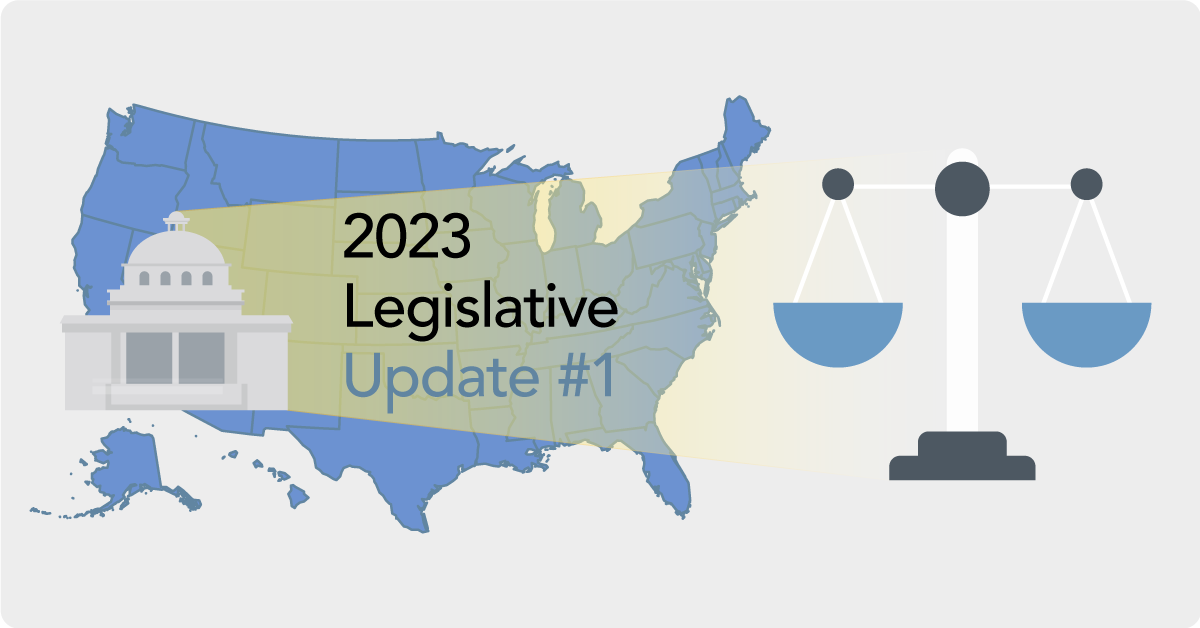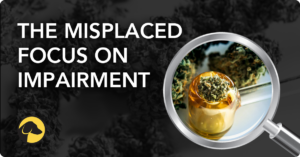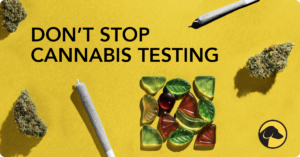
Navigating the Tangled Web of State Cannabis Laws
When it comes to legal cannabis, not all laws are the same. You often hear the same terms associated with the proposed or passed legislation: medical marijuana, adult use, or recreational use. But these terms can be slightly misleading because cannabis isn’t legal federally. Each state can establish cannabis laws that fit squarely within what it, and its voters, thinks is best.
So, what does medical, adult, and recreational cannabis use mean, and how can these terms impact an employer’s workplace cannabis policy?
NOT ALL LAWS ARE THE SAME
Let’s look at states with medical marijuana; Maine, Ohio, and Mississippi have legalized cannabis only for medicinal use.
Maine1 passed its medical cannabis law for 17 qualifying conditions – among them Alzheimer’s disease and illnesses that may contribute to chronic pain. Then, in July 2018, the state broadened the law even more, saying that physicians can prescribe cannabis to any patient they believe it will benefit. Possession is limited to 2.5 ounces, and patients or their caregivers can possess up to six mature cannabis plants.
Ohio2 lists 28 different qualifying conditions. In addition to those mentioned in Maine, the state includes illnesses such as traumatic brain injury and chronic migraine. Unlike Maine, which limits possession in ounces, Ohio quantifies patient limits to a 90-day supply. Ohio also sets restrictions related to home cultivation of marijuana plants.
Finally, for comparison purposes, Mississippi3 passed its medical marijuana law in 2022 and lists 23 qualifying conditions. Unlike Maine or Ohio, Mississippi also includes diabetic/peripheral neuropathy, dementia-related agitation, and muscular-related illnesses. Mississippi limits patient purchasing, allowing for up to 3.5 grams of cannabis flower or up to one gram of cannabis concentrate per day and no more than three ounces of flower per month.
RECREATIONAL ADULT USE
Similar inconsistencies can be found in cannabis laws regulating recreational adult use. Colorado, one of the first states to legalize adult use, limits possession to two ounces of cannabis flower or cannabis concentrate or 800 mg of THC edibles.4 Adults can also cultivate up to three mature marijuana plants and six marijuana plants in total.
In contrast, Michigan5 allows possession of up to 2.5 ounces of cannabis flower, 15 grams of concentrate which would count towards the flower limit, and 16 ounces of solid edibles. It also allows adults to maintain up to 12 marijuana plants, including all their harvest.
One of the newest states to pass a cannabis law is Maryland,6 representing yet another set of stipulations. Maryland’s law, going into effect in the summer of 2023, limits individuals to 1.5 ounces of cannabis flower, 12 grams of cannabis concentrate, and edibles not to exceed 750 milligrams. The law also allows adults to grow up to two marijuana plants and specifies that cannabis can be given as a gift.
Even more confusing are those states that do not categorically have legal medical marijuana but still have legal pathways to it in some capacity. For example, Georgia has a complete prohibition against legal cannabis. However, under Georgia law, a person can register with the Georgia Department of Public Health and lawfully possess 20 ounces or less of low-THC oil.7 Interestingly, medical cannabis does not prescribe or dispense low-THC oil, so it can’t be purchased within the state.
As you can tell, no two cannabis laws are the same. It’s enough to make your eyes cross.
THE WEB OF CANNABIS LAWS
With these new laws, employers are not only tasked with understanding the nuanced restrictions of their state cannabis laws but also with untangling the language and implications of the terms medical, adult, and recreational cannabis use. Many employers simply need to know if an employee has broken company policy, but the legislation passed within their state has complicated what used to be a straightforward answer.
Before cannabis legalization, legacy testing methods – such as oral fluid, urine, and hair – provided employers with a test result needed to enforce zero-tolerance workplace drug testing policies. But in the era of cannabis legalization, employers are in urgent need of a modern cannabis test to balance workplace safety with employee fairness and privacy. In many cases, zero-tolerance drug testing policies may no longer be compatible with ever-evolving cannabis laws. Employers may need to re-evaluate their drug testing policies, programs, and testing methods to avoid unintended consequences.
“We have an antiquated drug testing program, and now we’re stuck in a position where the laws are changing faster than our technology. We’re looking for a way to continue testing and have a safe work environment.”
-Manufacturing Employer
WHY RECENT USE TESTING MATTERS
What should an employer do when faced with this tangled web of state cannabis laws? The answer is simple: test for recent use. By working with outside counsel to modernize a workplace drug testing policy and narrowing down the window of detection to recent use, employers can feel comfortable knowing they are addressing safety and supporting privacy for employees who choose to use cannabis outside of work.
The HOUND® CANNABIS BREATHALYZER is the only cannabis test with a window of detection that isolates recent use, giving employers a way to detect and deter use correlating to an employee’s workday. The highly automated and ultra-sensitive Hound® solution measures THC in breath and returns objective results.
For an employer navigating changing state cannabis laws, a test that only detects recent use of cannabis is a more relevant measure to determine if an employee’s use complies with company policy.

March 30, 2023
By JESSICA COHEN TAUBMAN
Share












